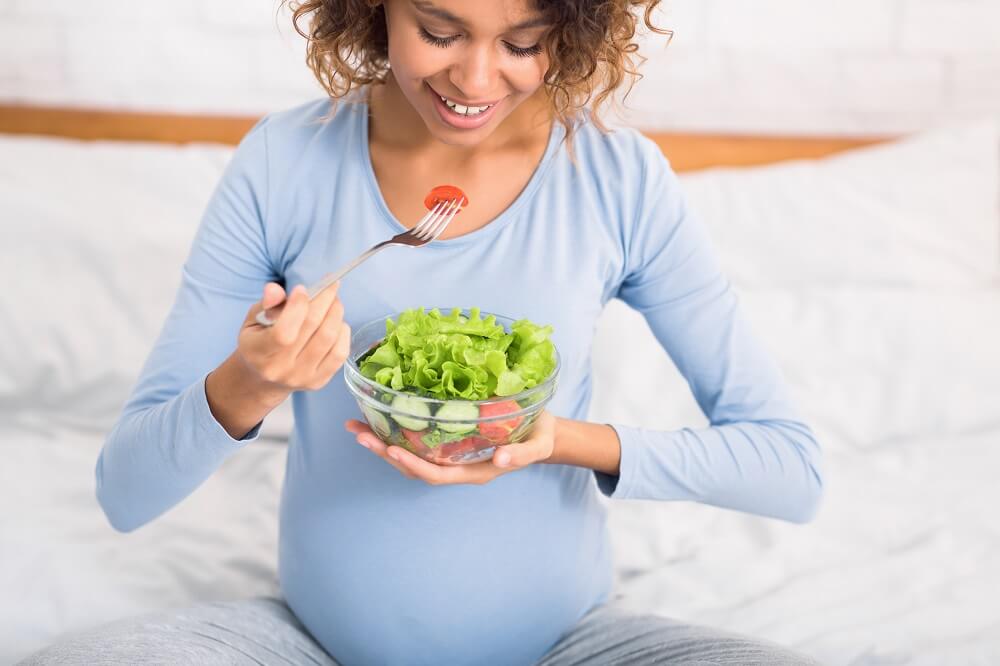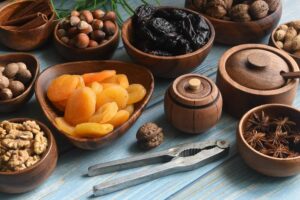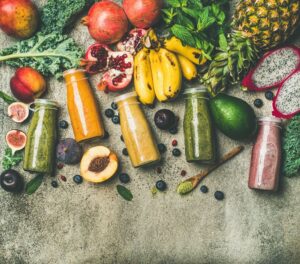As the saying goes, eating for two doesn’t have to mean eating twice as much. Pregnancy can leave you feeling exhausted and fatigued.
So it’s more important than ever to choose healthy meals when you’re expecting. Many women are concerned about how healthy their meals are when they’re pregnant. But with so much information out there it can be hard to sort fact from fiction.
Fortunately, you don’t have to worry about this so much if you follow the simple guidelines of this ultimate guide to healthy meals for pregnant women. It will help you get the nutrition your growing baby needs without sacrificing your health in the process. In this article, we’ll cover everything you need to know about healthy meals for pregnant women and how to make them work in your busy life.
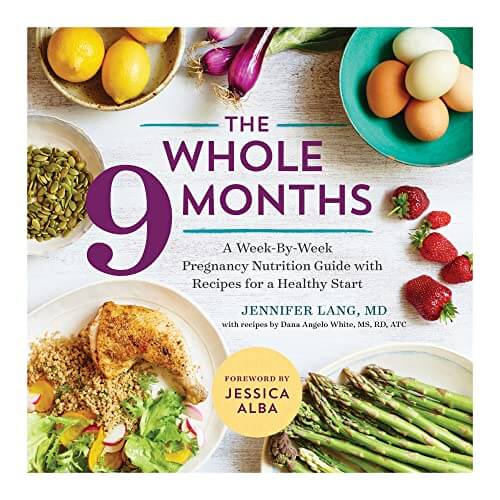
Maintain a nutritious diet when pregnant
A nutritious diet is important at any age, but it is especially important if you are pregnant or planning a pregnancy. Healthy pregnancy eating will support the growth and development of your unborn child. While you don’t need to follow a specific diet.
It’s still vital to consume a variety of meals every day to ensure you and your child get adequate nutrients. Try to have a nutritious breakfast each day to prevent nibbling on unhealthy foods that are heavy in fat and sugar.
In order to maintain a balanced meal, it is sometimes important to reduce rather than eliminate particular foods. The A Week-By-Week Pregnancy Nutrition Guide with Recipes for a Healthy Star guide will help you on selecting healthy meals for pregnant women. It demonstrates how much of your diet ought to come from each food category to maintain a healthy, balanced diet. While you don’t have to attain this balance at every meal, attempt to do so over a week.
Veggies and fruit during pregnancy
Consume a lot of fruits and vegetables since they include fibre, which aids in digestion and may help avoid constipation, as well as vitamins and minerals. Eat 5 servings of fruit and vegetables every day, in any combination of fresh, frozen, canned, dry, or juiced varieties.. Always be cautious while washing fresh produce. Avoid starchy meals and carbs. Starchy meals make you feel satisfied without having enough. Over a third of your diet should consist of veggies and fruit.

Protein consumption during pregnancy
Protein is one of the most important Healthy Meals for Pregnant Women. It can help with your baby’s growth, and it will also keep you feeling full and energized during those long days of pregnancy. Protein sources like meat, eggs, beans, soy foods, nuts, and seeds are all excellent options.
Meat, eggs, beans, soy products, almonds, and seeds are all great sources of protein. When preparing meat, use lean cuts, remove the skin of birds, and attempt to use minimal additional fat or oil. Make sure complete cuts of meat, such as lamb, cattle, and pig, as well as chicken, hamburgers, and sausages, are cooked thoroughly.
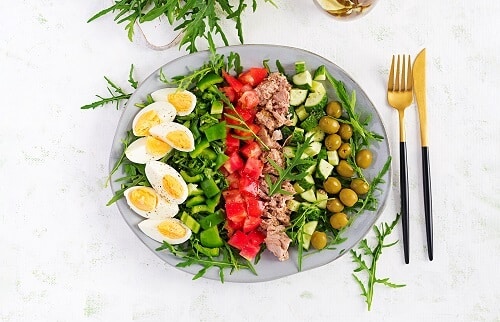
Fish and Egg Consumption during Pregnancy
Try to have two servings of fish every week, with one of them being oily fish like mackerel, sardines, or salmon. Learn about the advantages of fish and shellfish for your health. When you are expecting or want to become pregnant, you should stay away from certain species, such as marlin, shark, and swordfish.
More than two meals of oily fish per week, such as salmon, trout, mackerel, and herring, should be avoided when pregnant since they may contain contaminants (toxins). Pregnant women may consume raw or partly cooked eggs produced under the British Lion Code of Practice since they originate from flocks that have received a salmonella vaccination.
Pregnant women are advised not to consume eggs that have not been prepared under the Lion Code raw or partly cooked. The white and yolk of these eggs should be fully cooked.
Milk during Pregnancy
Because they include calcium and other essential nutrients for both you and your unborn child, dairy products like milk, cheese, and yoghurt are crucial during pregnancy. Select low-fat foods like low-fat hard cheese, low-fat yoghurt, semi-skimmed, 1 per cent fat, or skimmed milk.
If you prefer soy beverages and yoghurt to those dairy substitutes, choose unsweetened varieties that are calcium-fortified. Certain cheeses, such as ones that aren’t pasteurized, should be avoided during pregnancy.
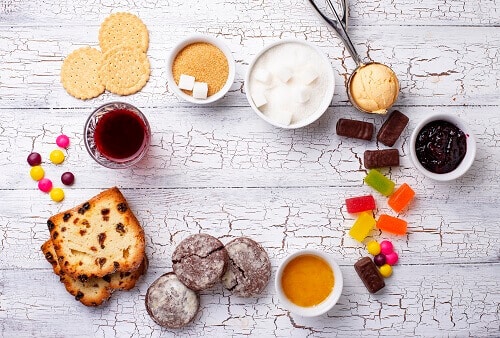
Foods with high fat, sugar, or both content
Sugary meals and beverages often contain a lot of calories, which may lead to weight gain. Additionally, eating and drinking sweet things might cause tooth decay. Due to the high-calorie content of fat, overindulging in fatty meals or eating them often might result in weight gain.
Consuming excessive amounts of saturated fat may also raise blood cholesterol levels, which raises your risk of heart disease. High-fat, high-sugar or both foods include spreadable fats (such as butter), oils, Dressings for salads, cream, chocolate, crisps, pastries, Icy treat, and Fizzy beverages.
Try to consume fewer foods high in saturated fat and more foods high in unsaturated fat, including vegetable oils.
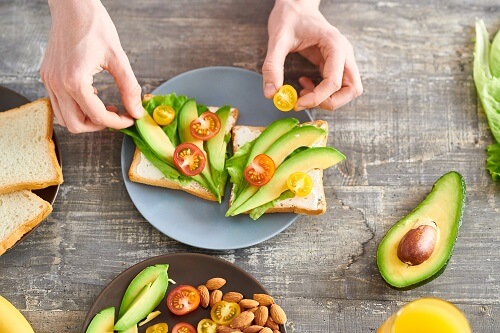
Healthy Pregnancy Snacks
If you find yourself becoming hungry in between meals, try to avoid high-fat or high-sugar snacks like chocolate, cookies, crisps, or sweets. Choose something healthy in its place, like sandwiches with grated cheese, lean ham, mashed tuna, salmon, or sardines, and salad, a small cup of milk, salad ingredients like carrot, celery, low-sugar yoghurt, plain yoghurt, a fruited tea cake, or a malt loaf.
Use food labels to your advantage while selecting snacks. Learn more about food labelling and how the “green, amber, red” system may assist you in making quicker, healthier decisions on healthy meals for pregnant women.

How to safely prepare food during pregnancy
The most important thing in preparing healthy meals for pregnant women is to cook the meal well. Make sure you wash your hands before and after preparing food and try not to cross-contaminate anything by using different cutting boards or knives for raw meat and vegetables.
Toxoplasma (a parasite that may cause toxoplasmosis and damage your unborn child) may be present in the soil, so wash fruit, vegetables, and salads well to get rid of any residues of dirt. To prevent food poisoning, always wash your hands after handling raw foods (poultry, meat, eggs, fish, shellfish, and raw vegetables).
There is a chance of contamination if raw foods and ready-to-eat items are not kept separately. Additionally, you must ensure that some meals, like eggs, poultry, and full cuts of meat like lamb, cattle, and pig, are sufficiently cooked until they are completely steaming.
Conclusion
Whether you’re pregnant with your first child or your fourth, you probably have questions about the food you should eat to give you and your baby the most nutrition and energy.
It’s important to remember that every pregnancy is different, so talk with your doctor about what foods are best for your particular situation. To help you get started, and know some healthy meals for pregnant women that expectant mothers should incorporate into their diets.
When a woman is pregnant, she is often concerned about her food. Follow our definitive guide to healthy meals for pregnant and leave a comment below on what you believe a pregnant lady should do.
Reference
Tanha, Fateme & Mohseni, Mona & Ghajarzadeh, Mahsa & MPH, Mamak. (2013). The Effects of Healthy Diet in Pregnancy. Journal of Family & reproductive health. 7.
Danielewicz H, Myszczyszyn G, Dębińska A, Myszkal A, Boznański A, Hirnle L. Diet in pregnancy-more than food. Eur J Pediatr. 2017 Dec;176(12):1573-1579. doi: 10.1007/s00431-017-3026-5. Epub 2017 Nov 3. PMID: 29101450; PMCID: PMC5682869.
WHO (2016) WHO recommendations on antenatal care for a positive pregnancy experience. World Health Organization, Geneva

